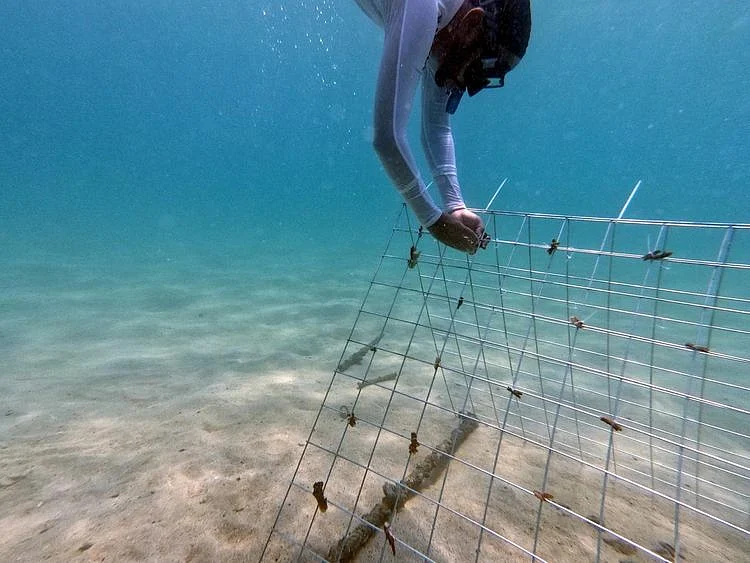Sharjah steps up to protect coral reef and species from extinction
Environment and Protected Areas Authority aims to address global coral bleaching

Sharjah: The Environment and Protected Areas Authority in Sharjah has launched a project focused on the culture and growth of corals of Sir Bu Nair Island, a statement from the authority said on Sunday.
The project aims to address the global coral bleaching and protecting species from extinction. Such initiatives raise awareness of marine coastal environments and address the global phenomenon of coral bleaching. Coral bleaching typically occurs due to changes in environmental conditions.
Sir Bu Nair Island Reserve is internationally acclaimed and recognised by the International Convention on Wetlands “Ramsar” for its diverse offerings. The Reserve is listed as a UNESCO World Heritage site and there is a memorandum of understanding on the protection and management of marine turtles in the Indian Ocean and Southeast Asia in place.
The increase in sea temperature is the primary cause contributing to the death of living organisms and is particularly hazardous to coloured algae resulting in corals turning white. Environmental scientific authorities consider climate change as the greatest threat to coral reefs currently and in the future.
Hana Saif Al Suwaidi, Chairperson of Environment and Protected Areas Authority, said, “The authority has made considerable efforts to preserve coral reefs and address the phenomenon of regional bleaching that impacted local areas between 2016 and 2017.”
In order to mitigate the impact of past bleaching events, the authority, in cooperation with the Emirates Marine Environment Group (EMEG), aim to restore coral reefs of Sir Bu Nair Island through the creation of a large-scale coral nursery.
The nursery involves the installation of multiple semi-fixed cages fixed with ropes. Corals are inserted at five to ten centimetre along the rope by temporarily twisting, moving fragments into rope openings and sealing the rope taught.
Ongoing monitoring of coral survival and growth rates will ensure approximately 94 per cent survival rate of healthy, sizeable corals available for transfer to restoration sites requiring increased coral cover and diversity enhancement.
Al Suwaidi stated that uncommon, rare or endangered coral species will be prioritised for nursery selection to conserve species and enhance site restoration outcomes.
Large-scale coral nurseries are a renowned method supporting the conservation of local species and an invaluable resource to restore damaged reef areas. Future initiatives focused on culture expansion to include 40 species of rare or endangered species as recognised by the IUCN Red List to expand conservation footprint, the statement said.
Sign up for the Daily Briefing
Get the latest news and updates straight to your inbox
Network Links
GN StoreDownload our app
© Al Nisr Publishing LLC 2026. All rights reserved.